3 signs Pope Francis might be preparing to resign
Is Pope Francis signaling that he's about to resign?

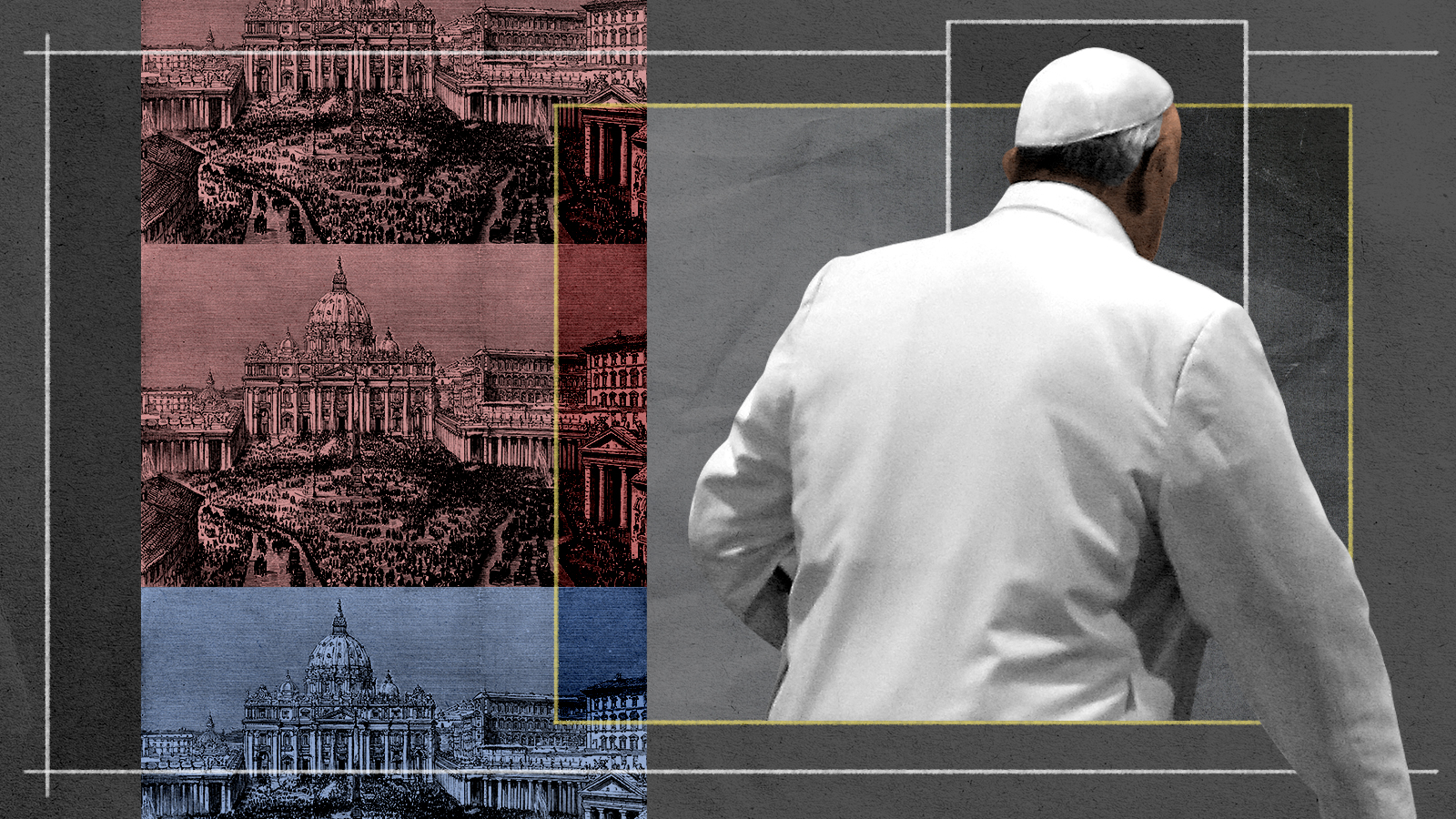
A free daily email with the biggest news stories of the day – and the best features from TheWeek.com
You are now subscribed
Your newsletter sign-up was successful
Pope Francis' health issues, new appointments to the College of Cardinals, and a planned visit to the tomb of Pope Celestine V have all fueled speculation that the pontiff plans to resign. Here's everything you need to know:
Who was Pope Celestine V and why is Pope Francis visiting his tomb?
The Vatican announced Saturday that the pope will visit the tomb of Pope Celestine V in the Italian city of L'Aquila in August. This announcement led some observers to speculate that Francis may be telegraphing his own impending resignation.
Celestine, born Pietro Angelerio, was elected pope in 1294 as a compromise candidate after two years of bickering among the various cardinals. By most accounts a saintly man, Celestine was canonized 17 years after his death, but his pre-papal life as a hermit left him ill-suited to oversee the church's complex bureaucracy. After just five months, the job was too much for him. He issued a decree declaring that popes had the right to resign and then quickly exercised that right.
The Week
Escape your echo chamber. Get the facts behind the news, plus analysis from multiple perspectives.

Sign up for The Week's Free Newsletters
From our morning news briefing to a weekly Good News Newsletter, get the best of The Week delivered directly to your inbox.
From our morning news briefing to a weekly Good News Newsletter, get the best of The Week delivered directly to your inbox.
Celestine's legacy in the church is twofold. First, to avoid another years-long deadlock, his successor decreed that the cardinals be locked up together until a new pope is chosen. This system remains in place today.
Second, he established the precedent that popes are allowed to resign voluntarily. Before Celestine, some popes had been forcibly deposed, but he was the first to freely give up the office.
Whether popes should resign was a different matter. In Dante Alighieri's Divine Comedy, the poet places Celestine in hell and describes him as "the craven one, who made the great denial." Celestine was succeeded by Pope Boniface VIII, whose broad view of the church's temporal power clashed with Dante's vision of church-state relations.
It took 719 years for another pope, Benedict XVI, to follow in Celestine's footsteps. Four years before resigning in 2013, Benedict visited Celestine's tomb and left his own pallium stole — a vestment symbolizing episcopal authority — at his medieval predecessor's grave.
A free daily email with the biggest news stories of the day – and the best features from TheWeek.com
If Francis is signaling his intent to resign as well, it would go a long way toward setting a new precedent. Instead of dying in office, future popes would be expected to relinquish the papacy when the mental and physical demands of the office became too much for them to handle.
What about the new cardinals Francis appointed?
The College of Cardinals is a group of senior Catholic clergy who receive lifetime appointments. Their main duty is to elect a new pope when the incumbent dies or resigns. Only cardinals under the age of 80 can vote in papal elections.
Cardinals also traditionally gathered twice a year in meetings known as consistories to advise the pope on matters of church government, but Francis has held less than one per year since his election, relying on a small group of close advisers rather than on the full college. The next consistory is scheduled for August and will overlap with the pope's visit to Celestine's tomb.
On Sunday, the Vatican announced that Pope Francis would create 21 new cardinals, 16 of whom are under 80. With these new additions, nearly two-thirds of the 83 cardinal electors will be Francis appointees.
According to Catholic teaching, the College of Cardinals "does not exist by divine institution," Ed Condon notes at the Catholic magazine Pillar. The office of cardinal — unlike that of pope, bishop, priest, or deacon — has no scriptural or dogmatic basis, but is instead a practical creation of the church. This allows popes to shape and utilize the college "according to their own best judgement."
Colleen Dulle and Gerard O'Connell, who host America magazine's Inside the Vatican podcast, observed that, in selecting this latest flock of cardinals, Francis generally "passed over 'cardinalatial sees,' big cities where the bishop has often been named a cardinal, in favor of bishops from underrepresented communities." The new cardinals include clerics from India, Ghana, Nigeria, Singapore, and East Timor. The share of cardinals from Italy dropped from 24 percent to 17.4 percent, the National Catholic Reporter notes.
Francis also appears to have made the college more reflective of his own ideological and pastoral outlook. Bishop Robert McElroy of San Diego, who is the only new cardinal from the United States and shares Francis' position of allowing pro-choice politicians to receive the Eucharist, provides a good example. Condon warns that the pope's appointments could turn the college into a "decidedly more political" institution.
Could Francis resign in August?
Technically he could resign at any time. If Francis chooses to resign during the August consistory, that consistory would automatically become a conclave, with the cardinal-electors locked in the Sistine Chapel until a new pope has been chosen. If nothing else, it would save on airfare.
On one hand, the time could be ripe for such a resignation. Francis is 85 — the same age Benedict was when he resigned — and he's been using a wheelchair for the past month due to strained ligaments in his right knee, causing him to cancel a June trip to Lebanon.
The pope also appears to have accomplished the main goals of his papacy. The new cardinals will ensure that the next conclave is less Eurocentric and "reflect[s] the diversity of the Catholic world," Dulle and O'Connell wrote. Also, Francis' new apostolic constitution reforming the Vatican bureaucracy took effect Sunday. According to The Associated Press, this document "allows women to head Vatican offices, imposes term limits on priestly Vatican employees and positions the Holy See as an institution at the service of local churches, rather than vice versa."
On the other hand, the cardinals haven't gathered in Vatican City since 2020. Many of them have never met one another. For these new cardinals, there's been no opportunity to float the names of possible successors during informal discussions in the Vatican hallways. Condon suggests that, rather than "stacking the deck," Francis "might have actually done the opposite — ensuring the election to choose his eventual successor is the most spontaneous of the modern era."
Grayson Quay was the weekend editor at TheWeek.com. His writing has also been published in National Review, the Pittsburgh Post-Gazette, Modern Age, The American Conservative, The Spectator World, and other outlets. Grayson earned his M.A. from Georgetown University in 2019.
-
 Local elections 2026: where are they and who is expected to win?
Local elections 2026: where are they and who is expected to win?The Explainer Labour is braced for heavy losses and U-turn on postponing some council elections hasn’t helped the party’s prospects
-
 6 of the world’s most accessible destinations
6 of the world’s most accessible destinationsThe Week Recommends Experience all of Berlin, Singapore and Sydney
-
 How the FCC’s ‘equal time’ rule works
How the FCC’s ‘equal time’ rule worksIn the Spotlight The law is at the heart of the Colbert-CBS conflict
-
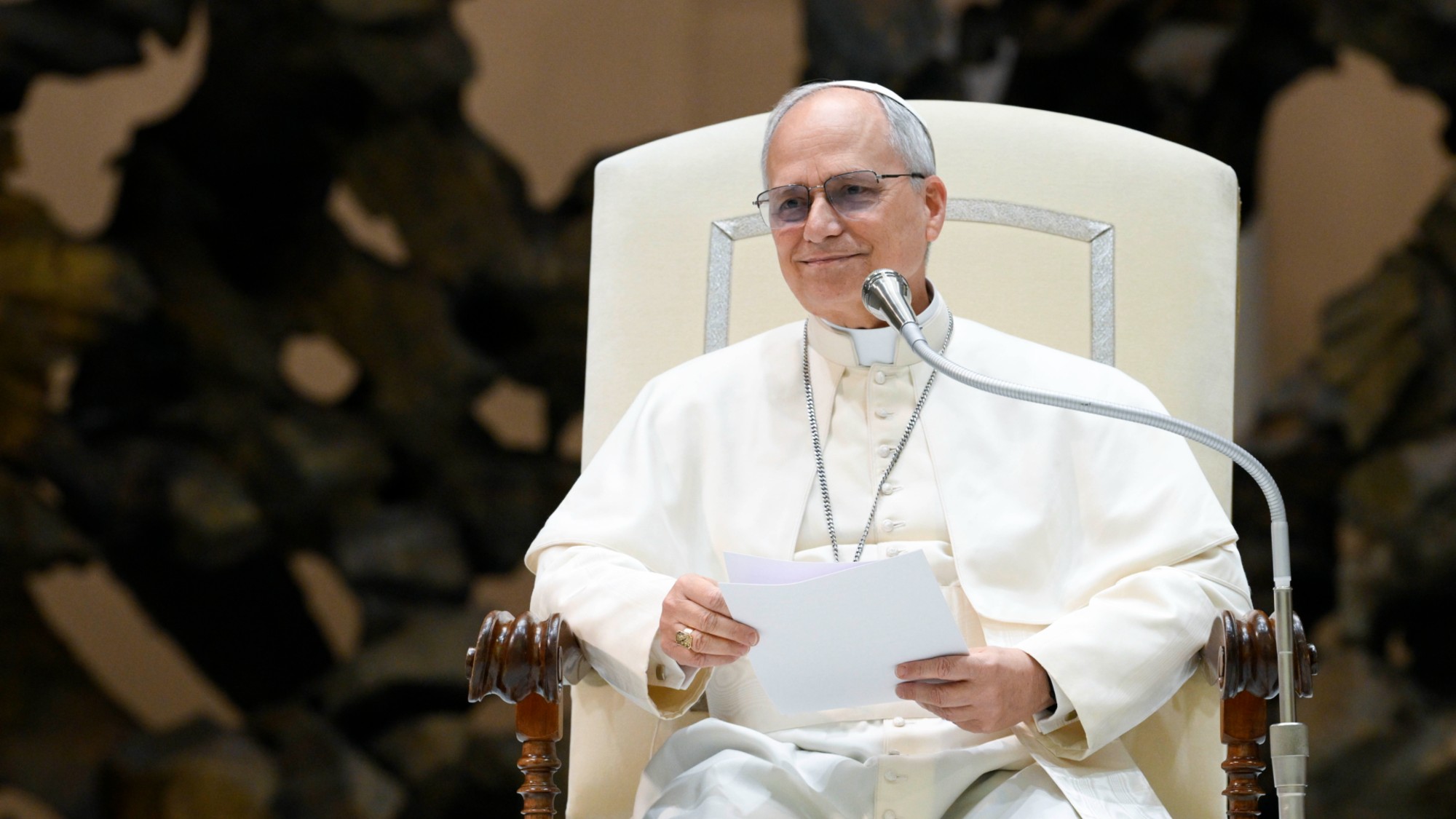 Where the new Pope Leo XIV stands on social issues
Where the new Pope Leo XIV stands on social issuesThe Explainer The first American pontiff is expected to continue some of his predecessor's work
-
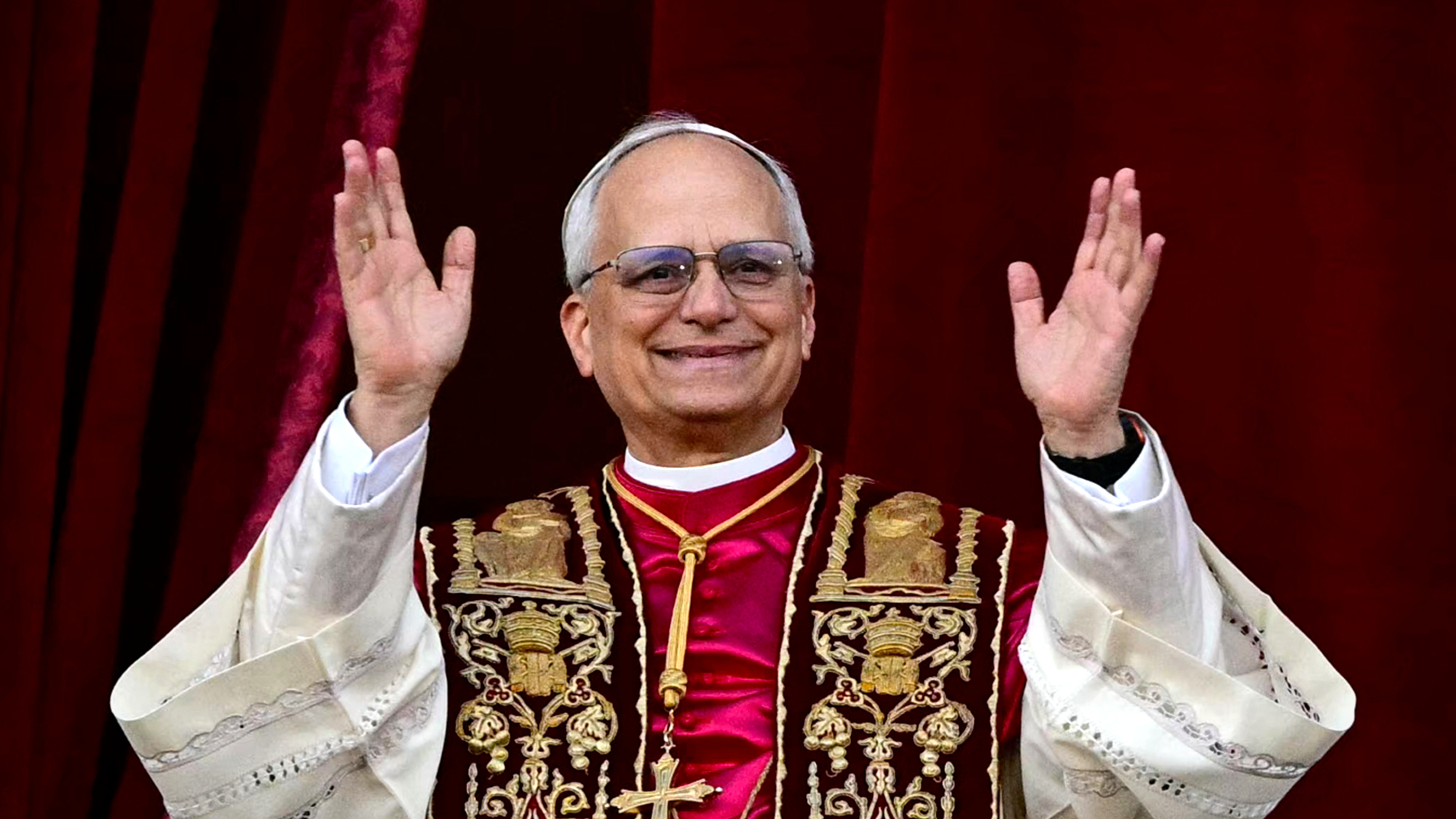 Prevost elected first US pope, becomes Leo XIV
Prevost elected first US pope, becomes Leo XIVspeed read Cardinal Robert Francis Prevost is a Chicago native who spent decades living in Peru
-
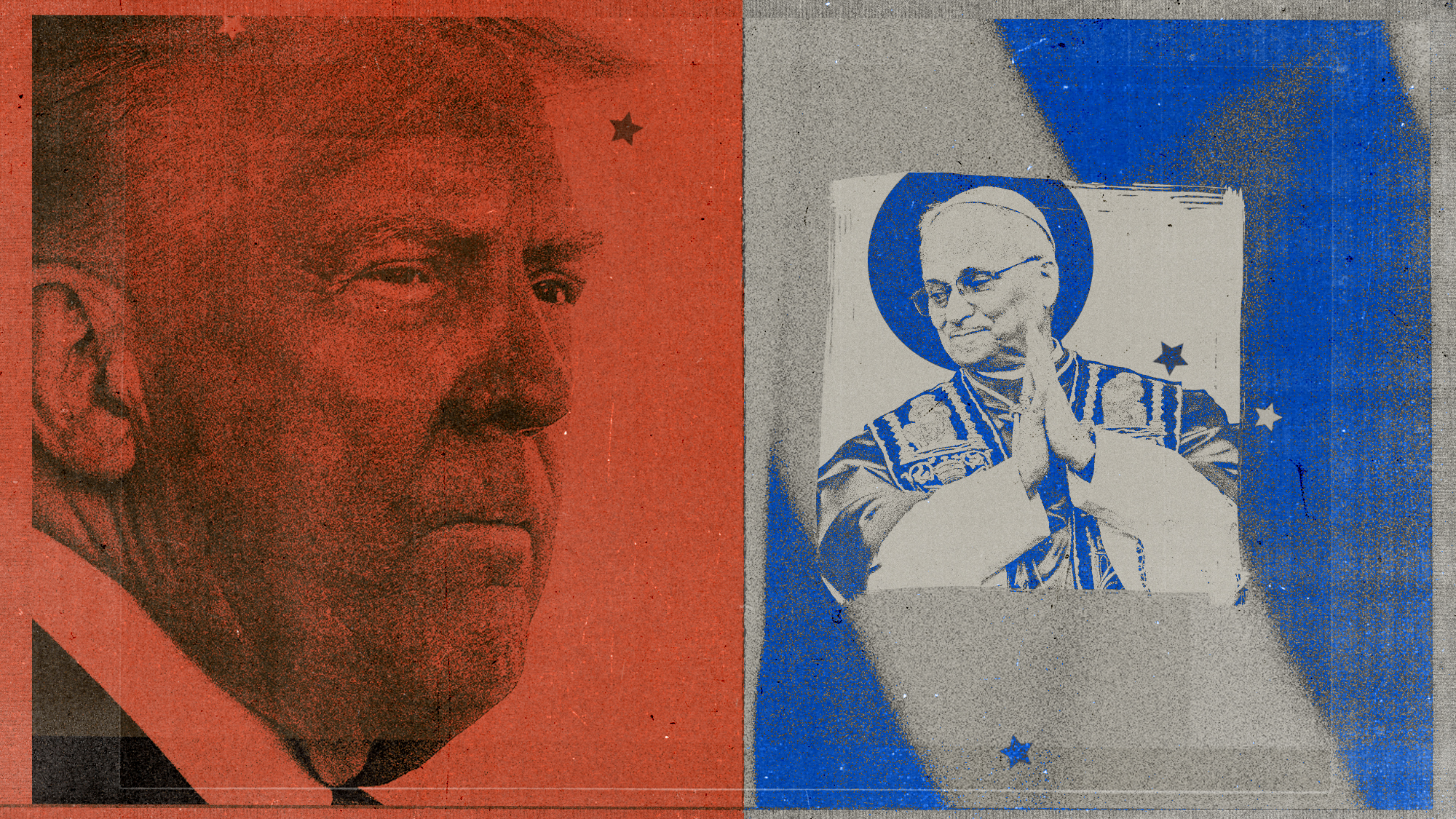 Leo XIV vs. Trump: what will first American Pope mean for US Catholics?
Leo XIV vs. Trump: what will first American Pope mean for US Catholics?Today's Big Question New pope has frequently criticised the president, especially on immigration policy, but is more socially conservative than his predecessor
-
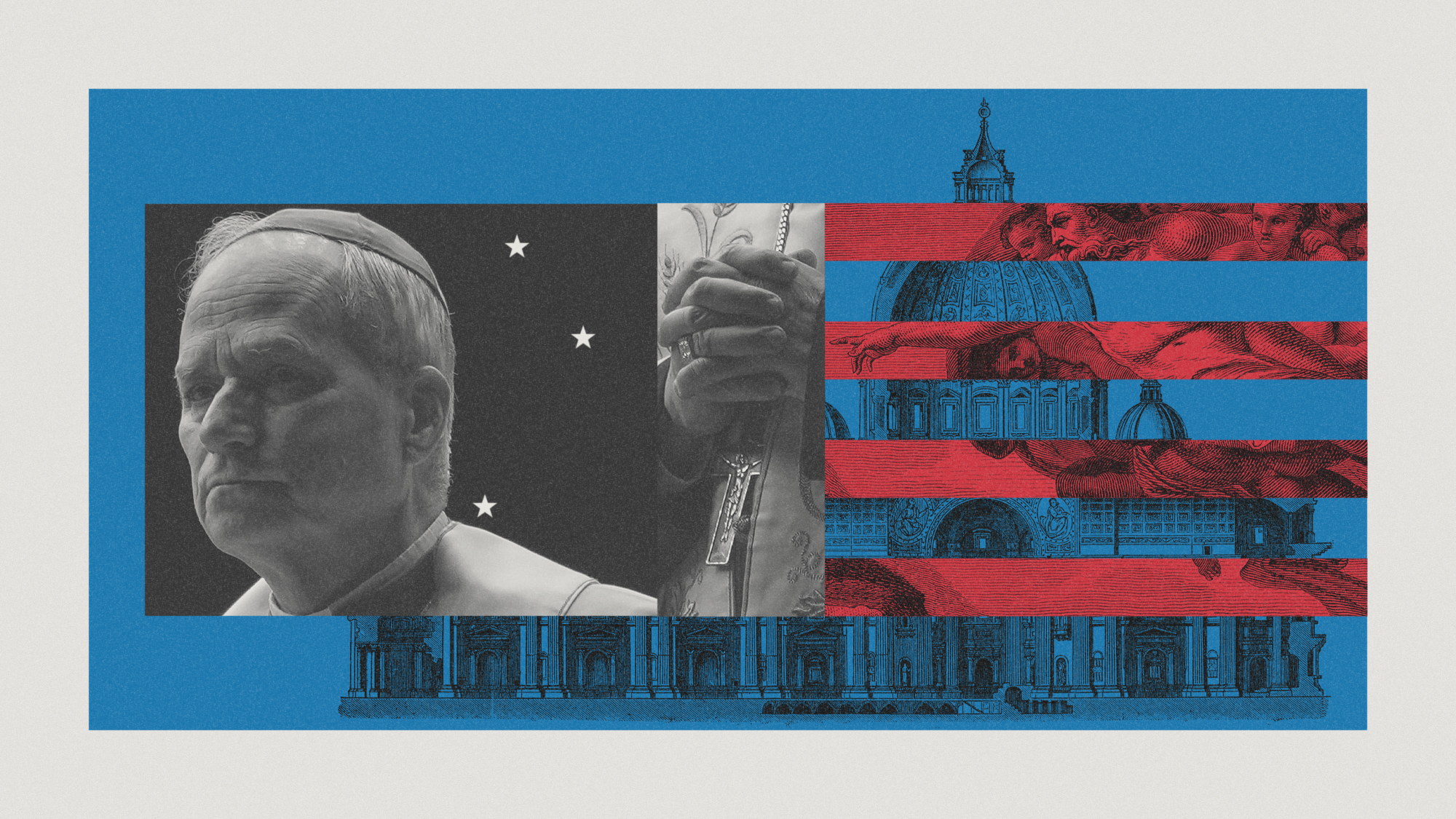 Could the next pope be an American?
Could the next pope be an American?Today's Big Question Cardinal Robert Francis Prevost is a possible 'superpower pope'
-
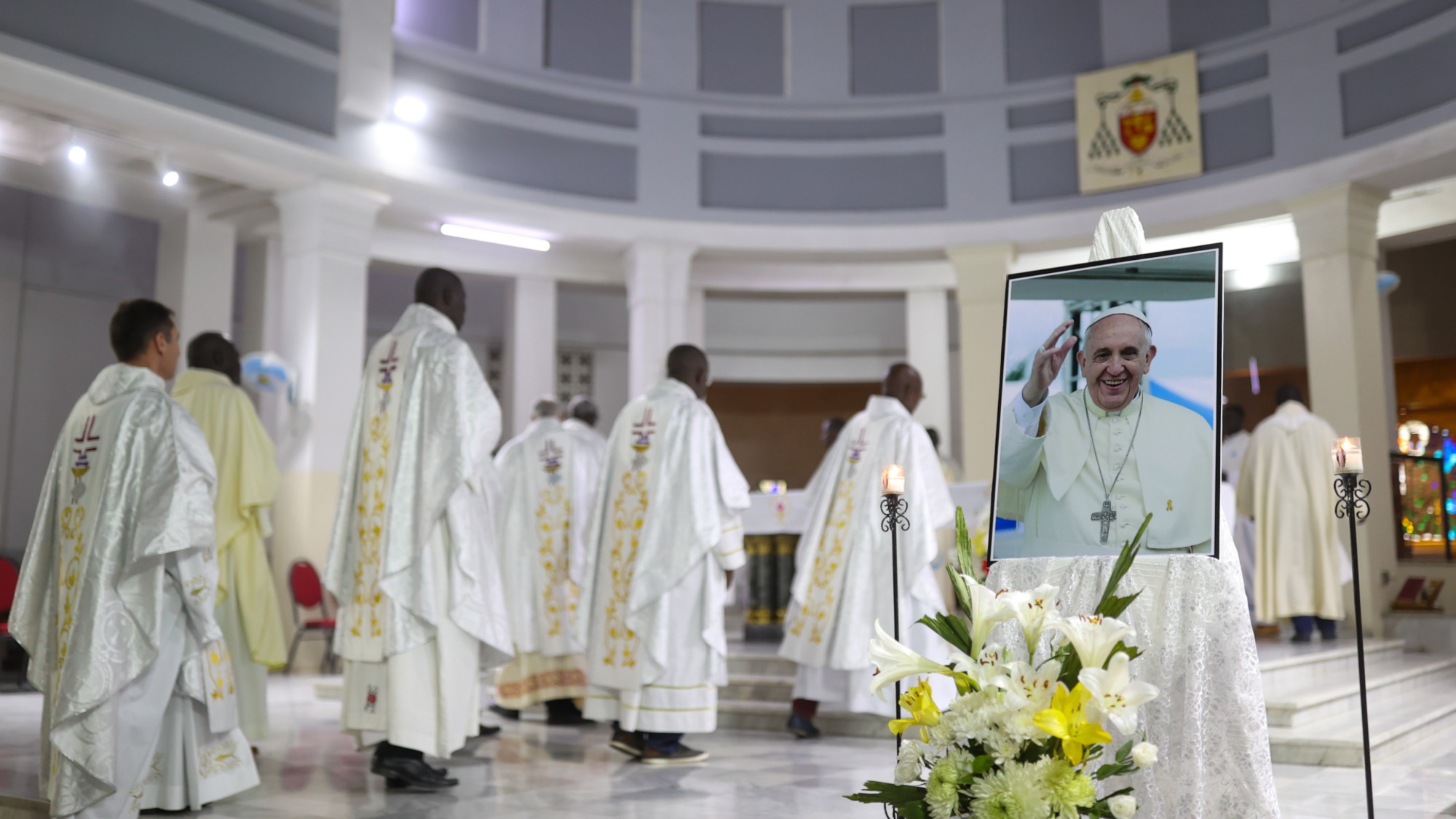 What would an African pope mean for the continent?
What would an African pope mean for the continent?Today's Big Question The Catholic Church has never had a pope from Africa in its modern history
-
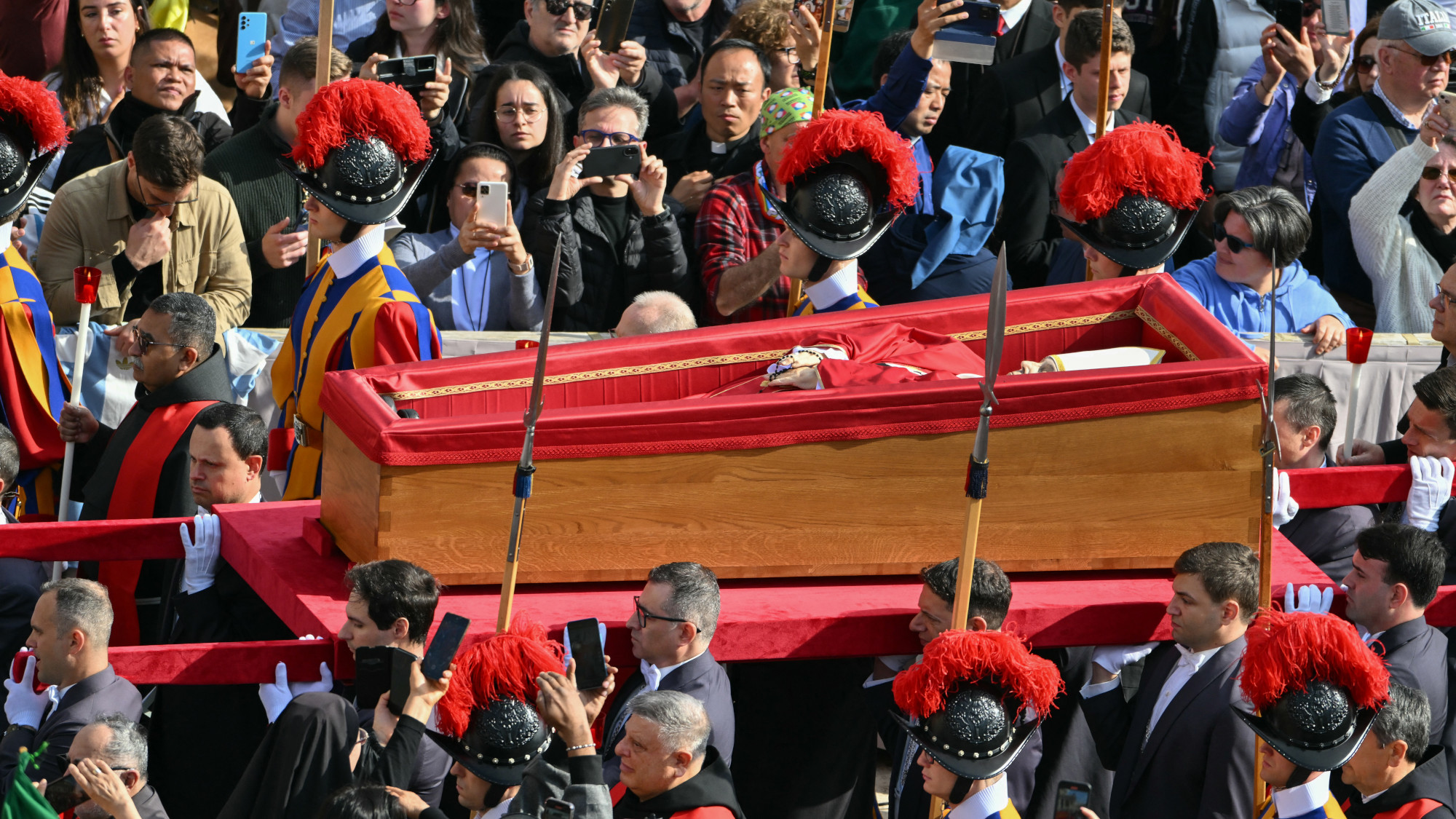 Millions mourn as Vatican prepares for transition
Millions mourn as Vatican prepares for transitionFeature Pope Francis, the pontiff who challenged tradition, leaves the Catholic Church at a crossroad to choose his successor
-
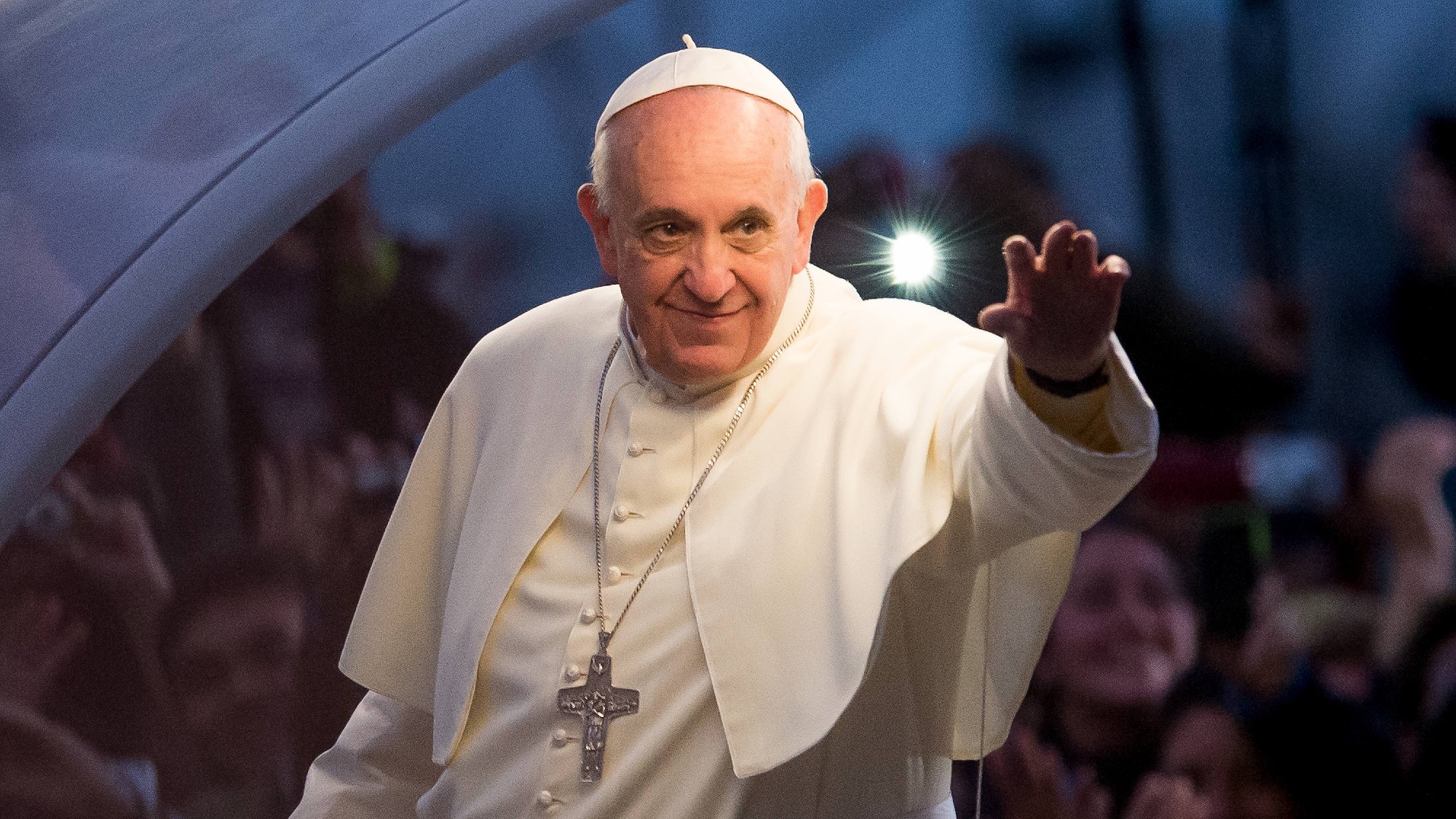 Pope Francis obituary: modernising pontiff who took the Gospel to the margins
Pope Francis obituary: modernising pontiff who took the Gospel to the marginsIn the Spotlight For traditionalist Catholics, Jorge Bergoglio's reforms often seemed to go too far; progressives, though, will demand more of his successor
-
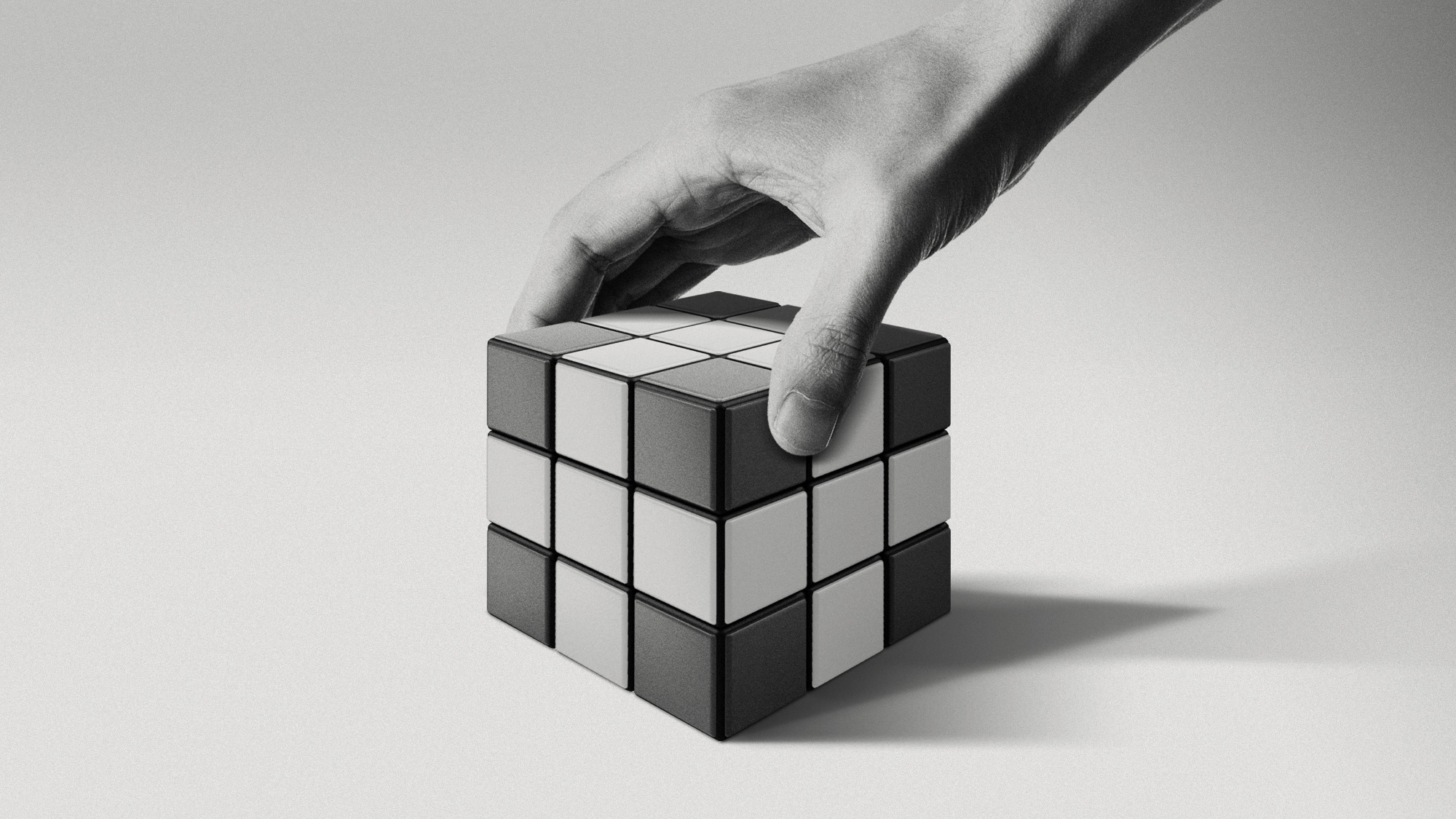 How will the next pope change the Catholic Church?
How will the next pope change the Catholic Church?Talking Points Conclaves can be unpredictable
